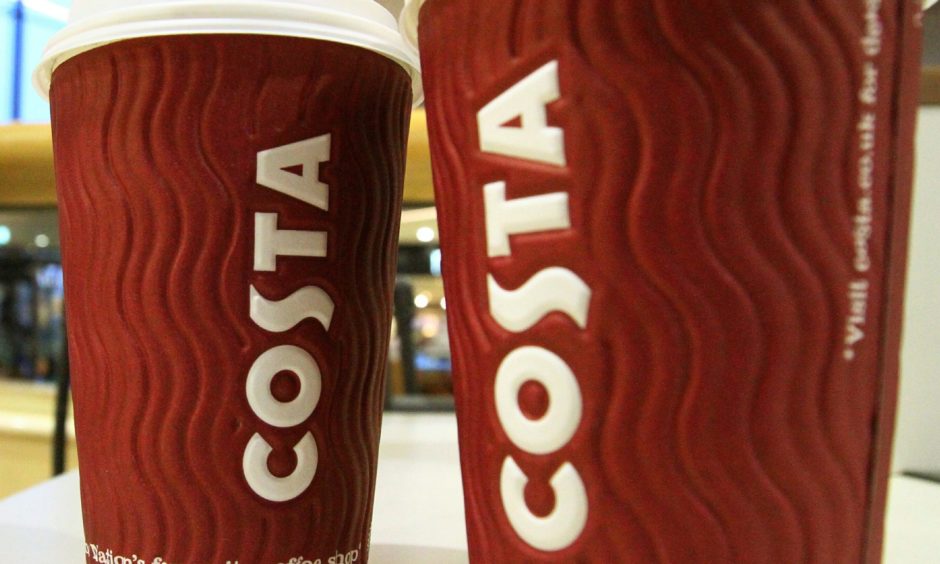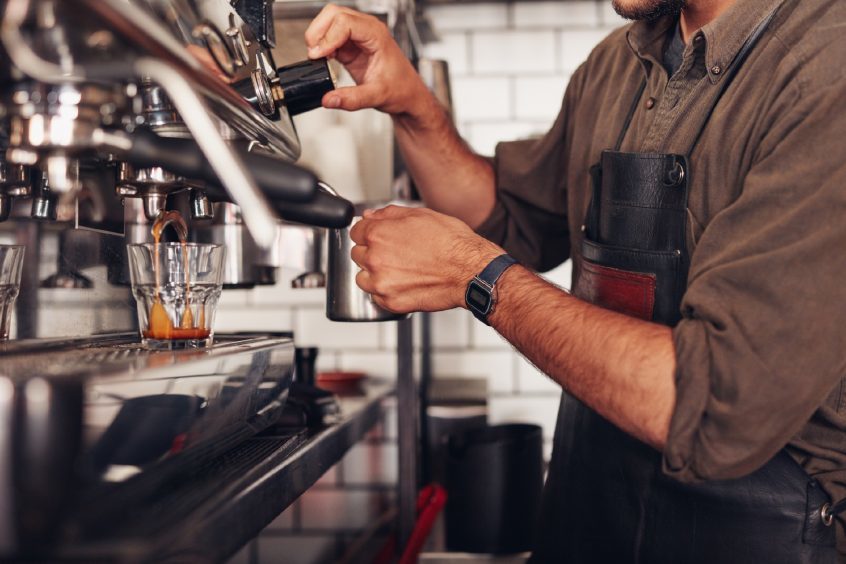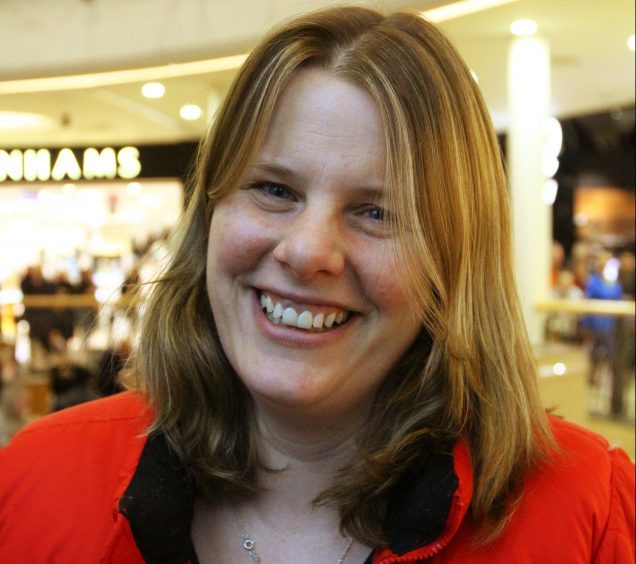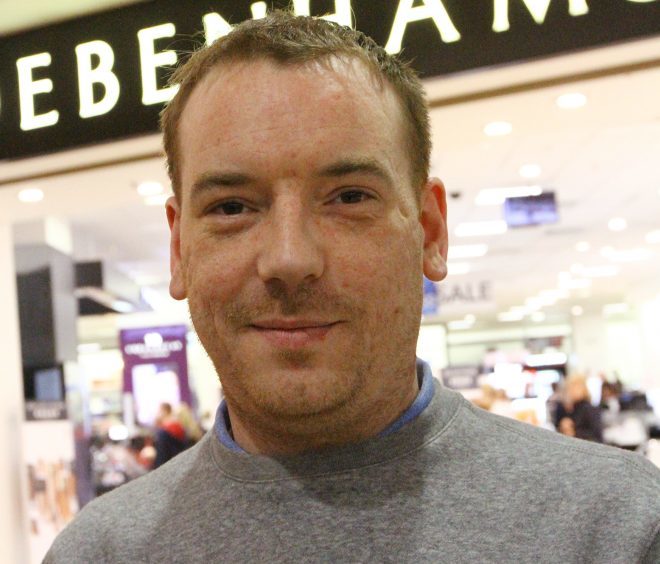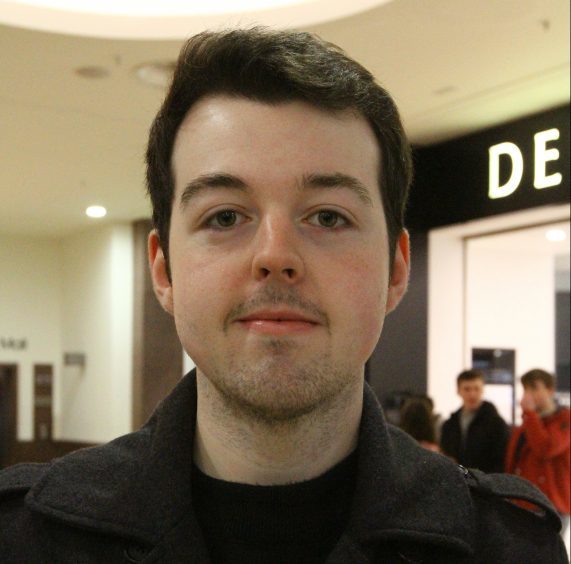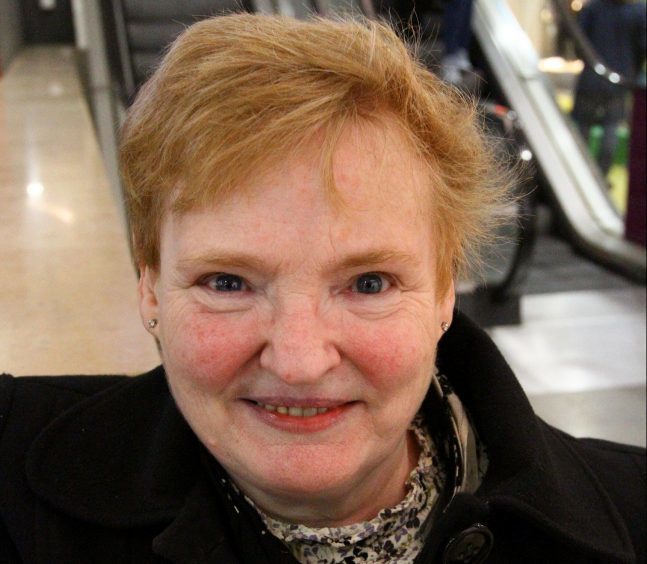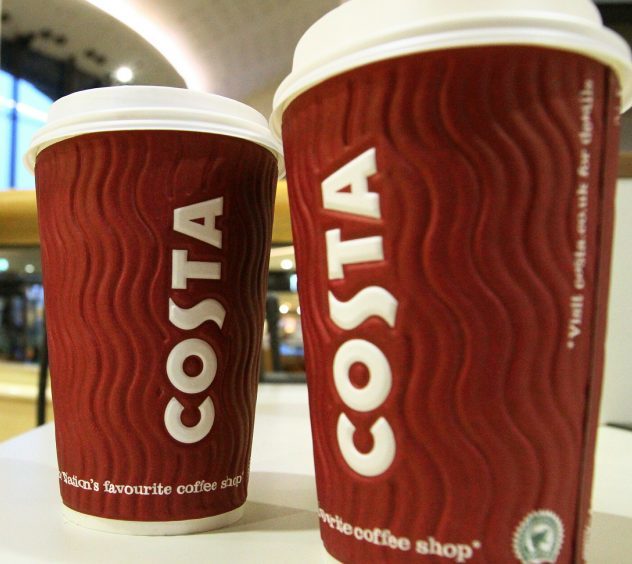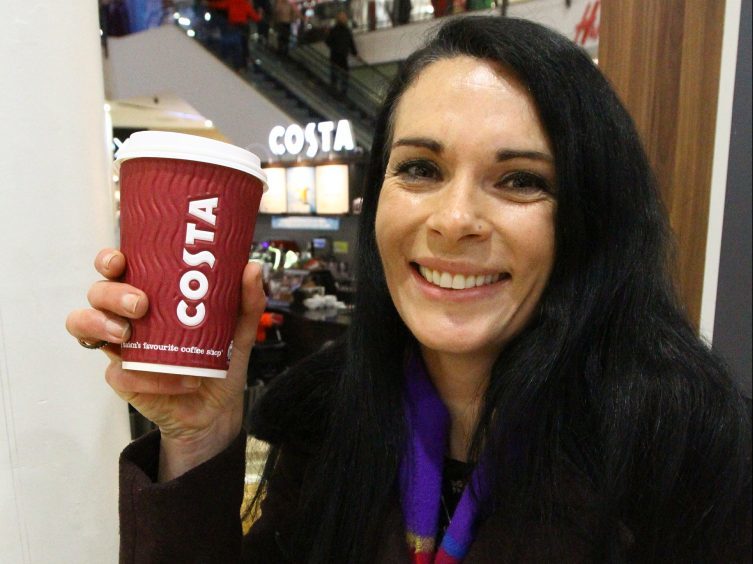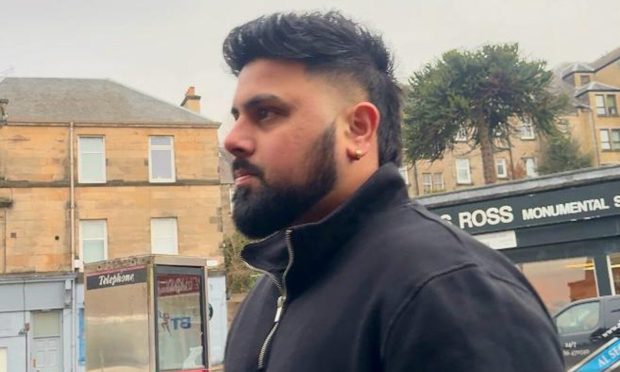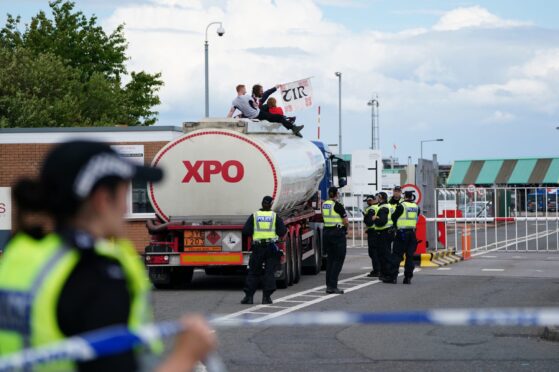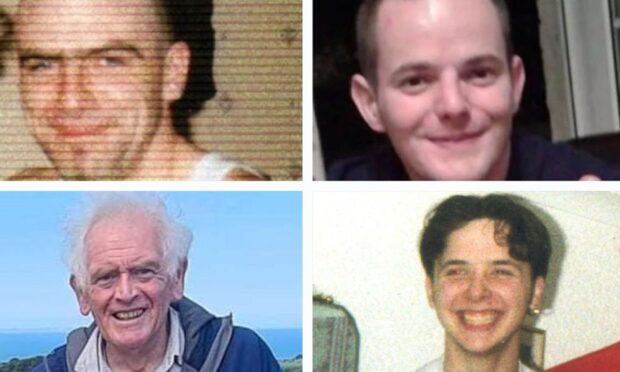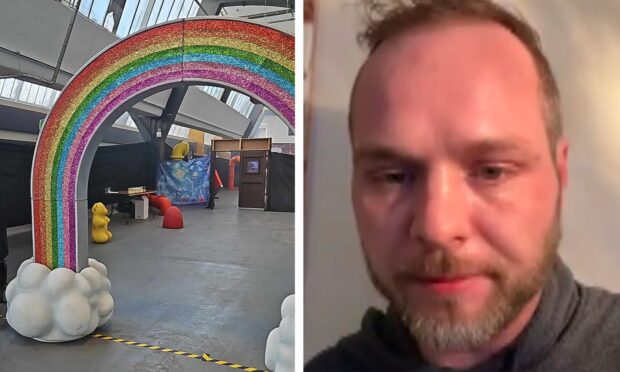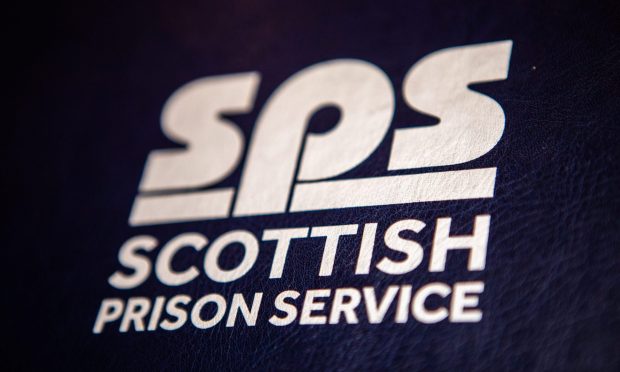Will a 25p charge change Britain’s throwaway coffee cup culture and improve recycling rates? Michael Alexander and Gayle Ritchie report.
Walk through any busy town centre on a weekday morning and the chances are someone will be carrying a disposable coffee cup.
It’s a symptom of Britain’s love affair with coffee and a reminder of the demand for a caffeine fix for busy people on-the-go.
Yet according to the latest figures, only 0.25% of the 2.5 billion used coffee cups thrown away in the UK each year are recycled.
Now MPs have called for a 25p ‘latte levy’ on takeaway coffees and teas to fund infrastructure in the next five years to make all cups recyclable.
If this fails they say disposable cups should be banned.
As the rain bucketed down in Dundee city centre on Friday, there were as ever no shortage of coffee shops for customers to shelter in.
But reaction was mixed to the prospect of being forced to pay a 25p levy on a take-away cup.
Jill Bennett, 38, said the extra charge would make a cup of coffee “very expensive”.
The mum from Cupar added: “I won’t be carrying a reusable cup around with me, that’s for sure.
“The extra 25p really pumps up the price and I think I’d rather just sit down and enjoy my coffee instead.”
Barry Saigeon, 33, a plasterer from Dundee, reckons coffee shops are “cashing in” by bumping up the prices.
“A coffee is expensive enough as it is – it won’t encourage me to go and buy takeaway ones any more,” he said.
“It’s just another added tax to profit big companies.”
Music education student Andrew Battes, 21, said he was definitely in favour of the latte levy, and already carries a resuable cup around with him.
“If you take in your own cup – which I do – you get a discount off your coffee in Costa and Starbucks,” said Andrew, from Dundee.
“It’s a great move environmentally and more people should get behind it.”
Meanwhile, retired hospitality worker Anna Drysdale, 60, from Kirkcaldy, questioned whether customers bringing in their own cups was hygienic.
“I used to work in catering and I’m aware of the importance of hygiene and keeping things clean,” she said.
“But what if someone brings in a manky cup? Are the staff then expected to wash it?
“It would be a hassle for many people to carry their own cups so I don’t think it’s the greatest idea.”
The report published by Westminster’s Environmental Audit Committee says the tax should be used to improve the UK’s recycling and reprocessing facilities.
The MPs say throwaway cups should be prohibited altogether by 2023 if they are not all being recycled.
The government agrees plastic waste is a problem and will seek evidence on a tax on single-use plastics.
The committee’s chair, Mary Creagh MP, said: “The UK throws away 2.5 billion disposable coffee cups every year – that’s enough to circle the planet five and a half times.
“Almost none are recycled and half a million a day are littered. Coffee cup producers and distributors have not taken action to rectify this and government has sat on its hands.
“The UK’s coffee shop market is expanding rapidly, so we need to kick start a revolution in recycling.”
However, the proposed 25p levy is being opposed by the makers of paper cups.
Mike Turner, of the Paper Cup Alliance, said paper cups were the most sustainable and safe solution for drinks on-the-go.
“The paper cups we manufacture in the UK are sustainably sourced, responsibly produced, recyclable and, through a number of facilities, are being recycled. We are committed to increasing recycling rates,” he said.
“Taxing the morning coffee run will not address the issue of litter, but it will hurt consumers and impact already struggling High Streets.”
Some coffee shops already offer a discount to customers who bring in their own reusable cups. For example, Pret-a-Manger offers 50p off, Costa Coffee 25p, Starbucks 25p and Greggs 20p.
However, MPs point out that only 1 to 2% of coffee drinkers respond.
Following the success of the plastic bag charge, they have concluded that consumers respond more to sticks than to carrots.
The plastic lining in coffee cups makes them costly to recycle, and the MPs say the businesses supplying and producing them do not bear the full costs of their disposal.
Disposable coffee cups are technically recyclable, but most are not because the UK has just three facilities that can split the paper and plastic components for recycling.
The committee’s recommendations have been welcomed by environmental campaigners.
Fiona Nicholls from Greenpeace UK, said the problem was getting bigger. She said:“We must not allow the packaging industry to water down these recommendations any further.”
Hugh Fearnley-Whittingstall, chef and campaigner, said: “The UK has woken up and smelled the coffee cup nightmare.
“The committee has recognised that the huge mountain of disposable coffee cups is effectively unrecyclable, and is overwhelming and disrupting the nation’s waste disposal systems, ultimately polluting our rivers and seas, and needs urgent action.
“This should pave the way for policy that ultimately stops the production of all non-recyclable plastic products.”
The British Coffee Association’s Chris Stemman, also welcomed the report’s broad principles, but said a levy was not the answer.
“It places an unfair and additional cost on coffee drinking consumers only – despite paper cups only contributing 0.7% of total paper packaging waste,” he told BBC News.
COMMENT BY GAYLE RITCHIE – COFFEE ADDICT!
I adore coffee and I’m a regular visitor to the likes of Costa and Caffe Nero.
I’m one of those folk who fires through loyalty cards like there’s no tomorrow.
What do I make of the 25p latte levy?
In theory, I think it’s a good idea, but in practice, I’m not sure if I could see myself carrying a reusable cup at all times.
Who’s going to wash it? Where would I keep it? Isn’t it a bit, well, yuck?
My handbag is already overflowing, so do I really want to add something else to the burden? No thanks.
However, I’m totally behind the idea of banning disposable cups and I’m big on recycling.
But if I’m in desperate need of a take-away coffee, I think I’d just pay the 25p. In fact, make it 15p and I’m sold.
When the tax kicks in, it will at least draw people’s attention to the fact we are pretty miserable at recycling, in the same way the plastic bag charge did. And that can only be a good thing.
It’s second nature (to me, at least) to always go armed with a stack of bags when I do my weekly shop, so maybe, in time, I’ll feel the same about reusable cups.
The costs of this levy really will add up. If you treat yourself to four cups of takeaway coffee each week, that’s an extra pound – a staggering £52 a year extra.
The answer? I think I’d rather just sit down and enjoy my brew in a relaxed fashion – served in a porcelain cup, thanks. And maybe with a scone or a cake on the side.
